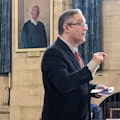Agro-cultural frontiers and the Amazon: contested histories, new alterities and emerging cultures
The group intend to organise five workshops, two in the UK and three in South America.
The workshops will invite international experts, national scholars and regional academic and non-academic stakeholders (such as farmer associations, local authorities, community and church organisations, cooperatives, NGOs, artists, etc.) to take part in networking activities, discuss existing knowledge and identify gaps in the state-of-the-art of agricultural frontiers in the Amazon.
The group consists of five British, Brazilian and Colombian universities:
- Cardiff University
- King's College London
- Federal University of Mato Grosso
- Federal University of Rondônia
- National University of Colombia
The series of workshops and a coordinated engagement during two years will lead to the consolidation of the Agro-Cultures Research Network, which will include additional academics in the core universities and in other regional centres of research, speakers and participants in the various workshops, and the academic, policy-making and non-academic communities.
This proposed network will especially examine the socio-cultural trajectory of change in the Amazon with a focus on what we describe as 'agro-cultural' frontiers.
The proponents believe that Arts and Humanities can greatly contribute towards the solution of environment and development dilemmas in the Amazon region, particularly considering the aggressive advance of agricultural modernisation and the movement of people to new areas, which have resulted in complex cultural exchanges, the rapid erosion of old practices and the formation of new, hybrid identities.
There is a clear responsibility of national governments and the international community to swiftly respond to the emerging challenges presented by impacts on traditions, customs and knowledges, mounting socio-economic inequalities and ecosystem degradation, and the lack of proper recognition of the agency, distinctiveness and subjectivities of subaltern groups of old and new residents (such as extractive communities, squatters, family farmers and indigenous tribes) in areas of agricultural frontier.
The Amazon occupies now an ambiguous place between the ancient and the modern worlds - not ancient enough yet not modern enough - which has resulted in the specific, lived socio-cultural dimensions of region being largely absent from many academic studies and policy-making. So far, the region has come to be defined especially through its natural and not it’s cultural history, and thus is represented primarily as a place of nature and not of culture.
Despite a growing scholarly work among social scientists on socio-economic, agrarian and demographic aspects of the advance of the agricultural frontiers, less is known about how global influences and past legacies are incorporated and retransformed in the production of alterities and cultural expressions.
The prevailing narrative of the agricultural frontiers in the Amazon is derived from a social imaginary dominated by the supposed heroism, entrepreneurialism and economic success of large-scale farmers, while interpersonal connections between different social groups, their subjectivities and cultural baggage, rising identities and household practices are still not adequately considered.
Likewise, there is a significant anthropological literature on indigenous tribes, their oral histories and cultures, but little is known about their participation and reaction to the advance of agricultural frontiers.
Therefore, through a series of events and debates, the new network will, for the first time, jointly address the intensive cultural exchanges and historical transformation of the agricultural frontiers in the Amazon.
The initiative will create an innovative space for discussion and North-South interaction between academics and non-academics focused on local knowledge, habits, language and subjectivities in the context of a rapidly changing cultural and spatial reality under the influence of (unsustainable) modernisation.
Tîm y prosiect

Dr Antonio Ioris
Senior Lecturer
Cefnogaeth
This research was made possible through the support of the following organisations: